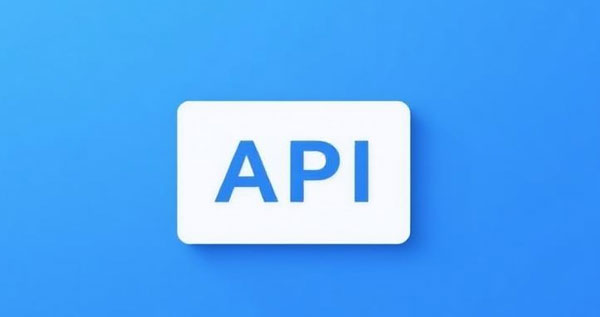Using Python with Proxies for Web Scraping: Bypass Restrictions and Improve Scraping Efficiency
Web scraping is a technique used to automatically extract data from websites, widely used in fields like market research, data analysis, and SEO optimization. However, as scraping technology advances, many websites have implemented anti-scraping measures to limit automated requests. Common methods include IP blocking, CAPTCHA challenges, and rate-limiting. To overcome these challenges, using proxy servers has become an essential tool to bypass restrictions and improve the efficiency of scraping.
In this article, we will discuss how to use Python with proxies for web scraping, helping you bypass IP restrictions and optimize the scraping process. Additionally, we will introduce how using Luckdata's proxy services can further enhance the stability and efficiency of your scraping tasks.
1. Web Scraping Basics
What is Web Scraping?
Web scraping is the automated process of extracting data from a website. By simulating the behavior of a user, a program can fetch content from a webpage and parse the data needed. The most common libraries used for web scraping are:
requests: Used to send HTTP requests.
BeautifulSoup: Used to parse HTML pages.
lxml: A fast HTML/XML parsing library, often used in large-scale scraping scenarios.
Selenium: Used for scraping dynamic web pages (e.g., JavaScript-rendered content).
Web Scraping Example
Let's start with a simple web scraping example using the requests and BeautifulSoup libraries:
import requestsfrom bs4 import BeautifulSoup
url = 'https://example.com'
response = requests.get(url)
soup = BeautifulSoup(response.text, 'html.parser')
# Assuming we want to extract all links on the page
links = soup.find_all('a')
for link in links:
print(link.get('href'))
This script fetches the content of the given URL and extracts all the links from the page.
2. Why Use Proxies?
During web scraping, many websites implement anti-scraping mechanisms that detect the source IP of requests and block them if too many requests come from a single IP address. When an IP is blocked, the scraping process fails.
The Role of Proxies
A proxy server helps by routing requests through different IP addresses, thus avoiding blocks on a single IP. Proxies not only hide the real source of requests but also help bypass geographical restrictions, allowing access to content that might be restricted based on location.
Here are the main benefits of using proxies:
Bypass IP Restrictions: Frequently accessing the same site can result in your IP being blocked. Switching proxies reduces the risk of getting blocked.
Geographical Bypass: Many websites restrict access based on users' geographic locations. Proxies allow you to bypass these restrictions.
Increased Anonymity: Proxies hide your real IP address, enhancing privacy protection.
3. Setting Up Proxies: How to Use Proxies for Web Scraping
Let’s now look at how to configure a proxy server in Python for web scraping. Assuming you already have the proxy address and authentication details, here's an example of how to use proxies in the requests library:
import requests# Set proxy
proxy_ip = "http://username:password@proxyserver:port"
proxies = {
'http': proxy_ip,
'https': proxy_ip,
}
# Send request
url = "https://api.ip.cc" # Get current IP address
response = requests.get(url, proxies=proxies)
print(response.text)
This code will use the proxy proxy_ip to send the request and print the current IP address, which will display the proxy IP instead of your local IP.
4. Using Luckdata's Proxy Services
If you're looking for a reliable and efficient proxy service to enhance your web scraping efforts, Luckdata offers excellent proxy solutions, especially suited for large-scale web scraping.
Luckdata Proxy Service Overview
Types of Proxies: Luckdata provides various proxy options, including data center proxies, residential proxies, and dynamic residential proxies to meet different scraping needs.
Proxy Advantages:
Global Coverage: With over 200 countries and regions covered, Luckdata supports IP location down to the city level, helping you bypass geographical restrictions.
High Performance: Offering over 120 million residential proxy IPs, Luckdata supports fast rotation and low latency, ensuring stable scraping experiences.
Multiple Protocols Supported: Luckdata proxies support HTTP/HTTPS protocols, catering to different scraping requirements.
Security and Compliance: Luckdata follows the highest standards of business ethics and compliance, ensuring user privacy and data protection.
How to Use Luckdata Proxy in Python
You can easily integrate Luckdata's proxy service into your Python script. Here's an example of how to use a Luckdata proxy in Python:
import requests# Set Luckdata proxy IP
proxy_ip = "http://Account:Password@ahk.luckdata.io:Port"
proxies = {
'http': proxy_ip,
'https': proxy_ip,
}
# Send request
url = "https://api.ip.cc"
response = requests.get(url, proxies=proxies)
print(response.text)
This method allows you to use Luckdata's proxy services for your web scraping, ensuring you don't face IP blocking issues.
5. Preventing Blocks: Increasing Scraping Success Rate
Even with proxies, some anti-scraping measures may still block your requests. To increase the success rate of scraping, consider implementing the following techniques:
1. Randomizing Request Headers
Websites often check the User-Agent and other HTTP headers to identify automated requests. By randomizing the headers, you can simulate requests from different browsers:
import requestsimport random
headers = {
'User-Agent': random.choice([
'Mozilla/5.0 (Windows NT 10.0; Win64; x64) AppleWebKit/537.36 (KHTML, like Gecko) Chrome/58.0.3029.110 Safari/537.36',
'Mozilla/5.0 (Windows NT 10.0; Win64; x64) AppleWebKit/537.36 (KHTML, like Gecko) Firefox/57.0',
'Mozilla/5.0 (Macintosh; Intel Mac OS X 10_12_6) AppleWebKit/537.36 (KHTML, like Gecko) Chrome/61.0.3163.100 Safari/537.36',
])
}
response = requests.get('https://example.com', headers=headers, proxies=proxies)
print(response.text)
2. Setting Request Intervals
To avoid sending too many requests in a short time, you can set time intervals between requests. This reduces the chance of getting blocked. You can use time.sleep() to introduce delays:
import timetime.sleep(1) # Wait for 1 second between requests
3. Using Proxy Pools
To avoid using the same proxy IP repeatedly and risking it being blocked, you can use a proxy pool, which automatically rotates proxies. Luckdata offers powerful proxy rotation features, allowing you to automate the process of changing proxy IPs for seamless scraping.
6. Conclusion and Best Practices
When performing web scraping, using proxies is crucial for bypassing anti-scraping mechanisms and improving efficiency. Luckdata’s variety of proxy options (e.g., data center proxies and residential proxies) can meet different scraping needs, helping you overcome geographical restrictions, enhance privacy protection, and ensure efficient data extraction.
Best Practices:
Randomize request headers to simulate real browser access.
Set reasonable request intervals to avoid overloading servers.
Use a proxy pool to rotate IP addresses regularly.
Use a professional proxy service like Luckdata to ensure proxy stability and scraping efficiency.
By properly configuring proxies and applying suitable strategies, you can significantly increase the success rate and efficiency of your web scraping tasks.




